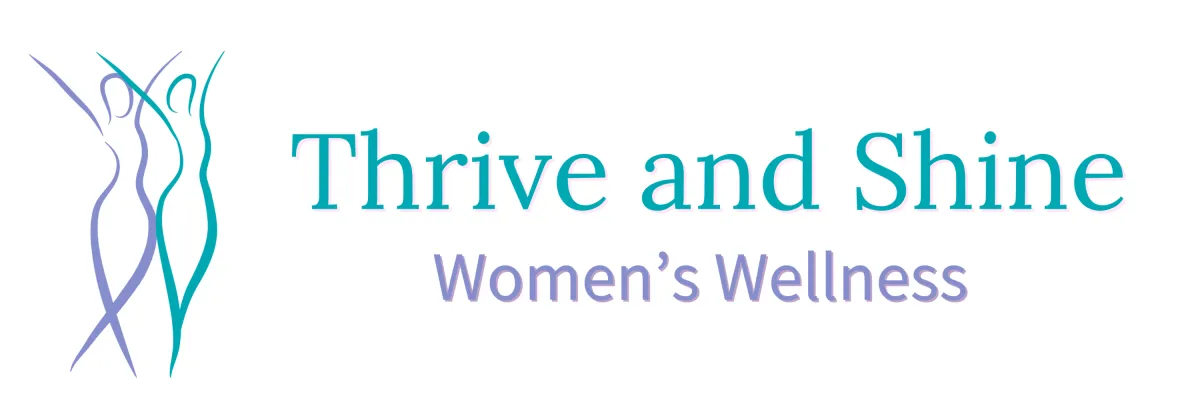BLOG
Step into Your Power. Learn, Transform, Thrive in Life Transitions. Embrace Your Best Self.

The connection between hormones and sleep
Introduction:
You may have heard about the significance of sleep for overall health and this importance is particularly evident by the impact of poor sleep on hormones. The body maintains a delicate balance of hormones and any disruption to this equilibrium can pose challenges to our health.

Understanding key Hormones
Growth hormone
Growth hormone plays a crucial role in the body, overseeing various functions such as regulating metabolism, sustaining a healthy body composition, supporting immune function, facilitating the repair of connective tissue, and preserving bone density.
Growth hormone exhibits a circadian rhythm, reaching its peak during deep sleep. However, as we age, the levels of growth hormone decline. Lower levels can lead to issues such as joint and muscle pain due to inadequate repair, weight gain, diminished bone density, and a weakened immune function.
Leptin and Ghrelin
These hormones manage our hunger. Ghrelin, known as the hunger hormone, typically increases before meals, signalling the body's need for food. On the other hand, Leptin, the satiety hormone, communicates to the body when it's satisfied and has consumed enough. During sleep, Leptin levels usually rise, contributing to a sense of fullness in the day.
When sleep is disturbed, the body tends to produce increased levels of Ghrelin, prompting a greater intake of high-calorie foods. This can lead to weight gain.
Melatonin
Melatonin is our sleep hormone and helps the body to wind down and prepare for sleep. It not only helps to initiate sleep but also contributes to the overall quality of sleep ensuring we have the different stages of sleep including deep and REM sleep. Melatonin typically increases in the evening in response to darkness and decreases in the morning in response to light promoting wakefulness.
As Melatonin is light sensitive it is easily disrupted if sleep conditions are not optimal such as use of devices emitting blue light such as phones.
Cortisol
Cortisol is one of our stress hormones and has an inverse relationship with Melatonin. When Cortisol is high Melatonin tends to be low promoting wakefulness. Then when Cortisol levels drop Melatonin rises signalling the body to prepare for sleep. Cortisol levels should peak first thing in the morning and gradually decline to their lowest levels in late evening/early night.
Cortisol is released by our adrenals in response to stressors which is a normal bodily response and is often called our fight or flight response. However, if our body continues to be subjected to stress then levels of cortisol remain high and this can disrupt sleep making it difficult to get to sleep or stay asleep. (Check out our blog about work stress here)
Symptoms of poor sleep
Understanding how poor sleep impacts these hormones reveals the potential effects on our health. The consequences of inadequate sleep on these hormones and other sleep-related processes may result in various symptoms, such as:
Weight gain
Anxiety/depression
Joint and muscle pain
Poor concentration
Reduced cognition/memory
Fatigue
Mood swings
Weakened immune function
Reduced libido
Headaches
Increased stress
Cardiovascular issues
Chronic health conditions- such as diabetes
Digestive issues
Hormonal imbalances
Worsened menopause symptoms
How to improve sleep?
There are many ways to improve your sleep. Here are a few tips to get you started.
Consistent Sleep Schedule
Maintain a consistent bedtime and wake-up time to support your body's natural circadian rhythm. Try and expose yourself to natural daylight early in the morning and darkness at night. This reinforces the sleep-wake cycle, promoting hormone production and better sleep quality.
Reduce Blue Light Exposure
Melatonin, our sleep hormone, is produced as it gets dark. Minimise exposure to electronic devices like computers and phones a few hours before bedtime to avoid disrupting Melatonin production.
Mindful Eating and Drinking
Steer clear of consuming drinks close to bedtime to prevent disturbances for bathroom visits. Avoiding caffeine and alcohol in the evening is essential, as they can adversely impact sleep. Late-night eating can lead to blood sugar fluctuations, potentially causing wakefulness.

Relaxing Wind Down Routine
Establish a soothing pre-sleep routine. Consider activities like a warm bath with scented candles, reading a book, or listening to calming music. This ritual helps reduce stress hormones, preparing your body and mind for restful sleep.
Appropriate Exercise Timing
Avoid intense cardio close to bedtime, as it can elevate cortisol and adrenaline levels, hindering sleep. Instead, opt for activities like yoga or gentle stretching. Engage in resistance exercise or cardio earlier in the day to enhance sleep benefits.
Guided Meditation and Hypnosis
Incorporate guided relaxation techniques into your evening routine. These practices calm both the mind and body, facilitating a smoother transition into sleep.
Mind Dump Before Bed
If a busy mind makes it difficult to get to sleep, practice a "mind dump" before bedtime. Keep a notebook and pen by your bed, jotting down worries and thoughts. This process can alleviate mental clutter, promoting a calmer state of mind conducive to sleep. You can also do this if you wake in the night worrying.
By integrating these practices into your daily routine, you can create an environment that fosters restorative sleep, supporting your overall health and well-being.
References
Kim TW, Jeong JH, Hong SC. The impact of sleep and circadian disturbance on hormones and metabolism. Int J Endocrinol. 2015;2015:591729. doi: 10.1155/2015/591729. Epub 2015 Mar 11. PMID: 25861266; PMCID: PMC4377487.

Sign up for our newsletter.
BLOG
Step into Your Power.
Learn, Transform, Thrive in Life Transitions.
Embrace Your Best Self.

The connection between hormones and sleep
Introduction:
You may have heard about the significance of sleep for overall health and this importance is particularly evident by the impact of poor sleep on hormones. The body maintains a delicate balance of hormones and any disruption to this equilibrium can pose challenges to our health.

Understanding key Hormones
Growth hormone
Growth hormone plays a crucial role in the body, overseeing various functions such as regulating metabolism, sustaining a healthy body composition, supporting immune function, facilitating the repair of connective tissue, and preserving bone density.
Growth hormone exhibits a circadian rhythm, reaching its peak during deep sleep. However, as we age, the levels of growth hormone decline. Lower levels can lead to issues such as joint and muscle pain due to inadequate repair, weight gain, diminished bone density, and a weakened immune function.
Leptin and Ghrelin
These hormones manage our hunger. Ghrelin, known as the hunger hormone, typically increases before meals, signalling the body's need for food. On the other hand, Leptin, the satiety hormone, communicates to the body when it's satisfied and has consumed enough. During sleep, Leptin levels usually rise, contributing to a sense of fullness in the day.
When sleep is disturbed, the body tends to produce increased levels of Ghrelin, prompting a greater intake of high-calorie foods. This can lead to weight gain.
Melatonin
Melatonin is our sleep hormone and helps the body to wind down and prepare for sleep. It not only helps to initiate sleep but also contributes to the overall quality of sleep ensuring we have the different stages of sleep including deep and REM sleep. Melatonin typically increases in the evening in response to darkness and decreases in the morning in response to light promoting wakefulness.
As Melatonin is light sensitive it is easily disrupted if sleep conditions are not optimal such as use of devices emitting blue light such as phones.
Cortisol
Cortisol is one of our stress hormones and has an inverse relationship with Melatonin. When Cortisol is high Melatonin tends to be low promoting wakefulness. Then when Cortisol levels drop Melatonin rises signalling the body to prepare for sleep. Cortisol levels should peak first thing in the morning and gradually decline to their lowest levels in late evening/early night.
Cortisol is released by our adrenals in response to stressors which is a normal bodily response and is often called our fight or flight response. However, if our body continues to be subjected to stress then levels of cortisol remain high and this can disrupt sleep making it difficult to get to sleep or stay asleep. (Check out our blog about work stress here)
Symptoms of poor sleep
Understanding how poor sleep impacts these hormones reveals the potential effects on our health. The consequences of inadequate sleep on these hormones and other sleep-related processes may result in various symptoms, such as:
Weight gain
Anxiety/depression
Joint and muscle pain
Poor concentration
Reduced cognition/memory
Fatigue
Mood swings
Weakened immune function
Reduced libido
Headaches
Increased stress
Cardiovascular issues
Chronic health conditions- such as diabetes
Digestive issues
Hormonal imbalances
Worsened menopause symptoms
How to improve sleep?
There are many ways to improve your sleep. Here are a few tips to get you started.
Consistent Sleep Schedule
Maintain a consistent bedtime and wake-up time to support your body's natural circadian rhythm. Try and expose yourself to natural daylight early in the morning and darkness at night. This reinforces the sleep-wake cycle, promoting hormone production and better sleep quality.
Reduce Blue Light Exposure
Melatonin, our sleep hormone, is produced as it gets dark. Minimise exposure to electronic devices like computers and phones a few hours before bedtime to avoid disrupting Melatonin production.
Mindful Eating and Drinking
Steer clear of consuming drinks close to bedtime to prevent disturbances for bathroom visits. Avoiding caffeine and alcohol in the evening is essential, as they can adversely impact sleep. Late-night eating can lead to blood sugar fluctuations, potentially causing wakefulness.

Relaxing Wind Down Routine
Establish a soothing pre-sleep routine. Consider activities like a warm bath with scented candles, reading a book, or listening to calming music. This ritual helps reduce stress hormones, preparing your body and mind for restful sleep.
Appropriate Exercise Timing
Avoid intense cardio close to bedtime, as it can elevate cortisol and adrenaline levels, hindering sleep. Instead, opt for activities like yoga or gentle stretching. Engage in resistance exercise or cardio earlier in the day to enhance sleep benefits.
Guided Meditation and Hypnosis
Incorporate guided relaxation techniques into your evening routine. These practices calm both the mind and body, facilitating a smoother transition into sleep.
Mind Dump Before Bed
If a busy mind makes it difficult to get to sleep, practice a "mind dump" before bedtime. Keep a notebook and pen by your bed, jotting down worries and thoughts. This process can alleviate mental clutter, promoting a calmer state of mind conducive to sleep. You can also do this if you wake in the night worrying.
By integrating these practices into your daily routine, you can create an environment that fosters restorative sleep, supporting your overall health and well-being.
References
Kim TW, Jeong JH, Hong SC. The impact of sleep and circadian disturbance on hormones and metabolism. Int J Endocrinol. 2015;2015:591729. doi: 10.1155/2015/591729. Epub 2015 Mar 11. PMID: 25861266; PMCID: PMC4377487.

Sign up for our newsletter.




